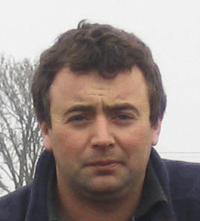Farmer Focus: Philip Reck wants winter plough ban rethink

It seems last month’s optimism has paid off. Once an exceptional wet spell had passed, we have experienced a continuous dry period that allowed us to finish the remaining combining.
Land had soaked sufficiently by then and this allowed the Vaderstad TopDown to start cultivations.
Although there are no ruts, the footprint of the combine is clearly evident while cultivating. So we are cultivating deeper than normal to alleviate compaction from the wet harvest.
Husky winter oats have been drilled and a small acreage of winter wheat on the heavier land will be drilled by early October.
It seems almost surreal to be leaving a trail of dust while drilling.
The BioDrill drill mounted on the Topdown has been busy sowing forage rape on cultivated land destined for spring barley.
This will be sprayed off in the early spring and direct drilled or cultivated to create a seed-bed depending on the ground conditions.
The Irish Farmers’ Association has stepped up its campaign for derogation on the ban on winter ploughing.
It has become alarmingly apparent this rule is being detrimental to Irish farmers.
Stubbles are left to green up over the winter as the rules dictate land must have a green cover.
This places increasing pressure on glyphosate to clean up the stubbles before ploughing in the spring.
Grassweeds, scutch and wild oats are becoming more common because of this. Normally the farmer would clean up his stubble in the autumn and plough around Christmas with a good frost or two making seedbed preparation in the spring easier on machinery and diesel.
This system also ensured any damage to the soil during the harvest was corrected.
A comprehensive code of good practice would be more beneficial and appropriate.

